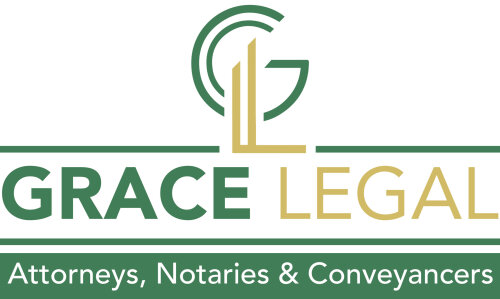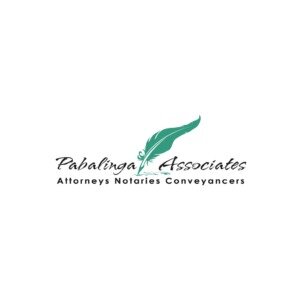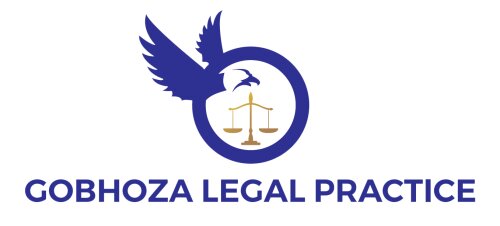Best Project Finance Lawyers in Botswana
Share your needs with us, get contacted by law firms.
Free. Takes 2 min.
Or refine your search by selecting a city:
List of the best lawyers in Botswana
About Project Finance Law in Botswana
Project Finance in Botswana involves structuring and funding large-scale infrastructure or industrial projects, such as power plants, mines, transportation systems, and water facilities. The unique aspect of Project Finance is that the project’s assets and predicted revenues are used as collateral, rather than the general assets or credit of sponsors. Project Finance typically involves a network of stakeholders, including project sponsors, financial institutions, contractors, and public authorities. In Botswana, Project Finance is increasingly common in sectors like mining, energy, and construction, reflecting the country's ongoing development and interest in attracting foreign investment.
Why You May Need a Lawyer
Engaging a lawyer in Project Finance transactions is crucial for several reasons. The legal frameworks and agreements in Project Finance are highly complex and involve detailed risk allocation, financial structuring, lender protections, and compliance with local regulations. Legal professionals help with:
- Drafting and negotiating loan and security agreements
- Structuring deals in compliance with Botswana’s laws
- Ensuring all permits, licenses, and regulatory approvals are in place
- Handling land acquisition and local content requirements
- Managing risk allocation among multiple stakeholders
- Navigating the tax, environmental, and corporate governance implications
- Resolving disputes among partners or lenders
If you are a project sponsor, lender, contractor, government entity, or investor, seeking legal guidance ensures your interests are protected and your project remains viable throughout its life cycle.
Local Laws Overview
Project Finance in Botswana is governed by a blend of commercial, banking, land, and regulatory laws. Some of the key laws impacting Project Finance include:
- Companies Act - Regulates the formation and governance of entities involved in project ventures.
- Banking Act - Sets the framework for borrowing, lending, and security interests.
- Securities Act - Governs the issuance and trading of securities, which may include bonds or guarantees.
- Environmental Assessment Act - Requires environmental approvals for impactful projects.
- Public-Private Partnership (PPP) Policy - Provides guidance for collaborations between government and private sponsors.
- Land Tenure Laws - Address acquisition and use of land for project purposes, including tribal land regulations.
- Tax Laws - Impact the structuring of finance, payments, and returns.
In Botswana, foreign investment is welcomed, but there may also be local participation requirements and currency controls that must be considered at the planning stages of a Project Finance transaction.
Frequently Asked Questions
What is Project Finance?
Project Finance is a method of funding large projects by using the cash flow generated by the project itself as security for the loan, rather than the sponsor's overall balance sheet.
Which sectors in Botswana commonly use Project Finance?
The mining, energy, water, telecommunications, and transportation sectors are most likely to use Project Finance structures due to the scale and capital-intensity of projects in these areas.
Can foreign investors participate in Project Finance in Botswana?
Yes, Botswana encourages foreign investment in large projects. However, foreign investors must comply with local company, tax, and land ownership regulations.
What role do government agencies play in Project Finance projects?
Government agencies may act as regulators, licensors, or even project sponsors in the case of public-private partnerships. They often approve key permits and may negotiate with private sponsors.
Do Project Finance deals in Botswana require environmental approvals?
Yes, most large projects must conduct Environmental Impact Assessments and obtain approvals to ensure compliance with environmental laws and policies.
What are the typical risks in Project Finance transactions?
Major risks include construction delays, cost overruns, regulatory changes, market risks, foreign exchange risks, and political risks. Managing and allocating these risks is central to successful Project Finance deals.
What kind of security can lenders take in Project Finance in Botswana?
Lenders typically secure their interests by taking charges over project assets, shares in the project company, and rights under key contract agreements such as off-take or revenue stream contracts.
Is it necessary to form a special company for a Project Finance deal?
It is customary to form a Special Purpose Vehicle (SPV) to isolate the project’s assets and liabilities from those of the sponsors, improving transparency for lenders and investors.
How long does it take to close a Project Finance transaction in Botswana?
The timeline varies depending on project complexity, regulatory approvals, and negotiation periods, but it often takes several months to over a year from initial structuring to financial close.
How can a lawyer assist with disputes relating to Project Finance?
A lawyer can help draft robust dispute resolution clauses, represent parties in negotiations, mediations, or arbitrations, and provide advice on enforcing contractual rights under Botswana law.
Additional Resources
For further guidance and assistance, you can contact or consult the following resources:
- Botswana Investment and Trade Centre (BITC) - for information on investing in large projects.
- Botswana Ministry of Minerals and Energy - for regulatory requirements in energy and mining sectors.
- Botswana Stock Exchange - for regulations relating to securities and project bonds.
- Botswana Environmental Assessment Agency - for guidance on environmental compliance.
- Botswana Unified Revenue Service (BURS) - for tax regulations impacting project structures.
- Law Society of Botswana - to find qualified legal practitioners with Project Finance expertise.
Next Steps
If you are considering involvement in a Project Finance transaction in Botswana, it is essential to seek professional legal advice as early as possible. Assess your project's objectives, potential partners, and risk profile. Prepare relevant documentation and identify regulatory approvals required for your sector. You should then:
- Research and shortlist legal practitioners or firms with experience in Project Finance and your sector.
- Schedule a consultation to discuss your project’s structure, financing needs, and legal requirements.
- Work with your lawyer to conduct due diligence, draft and negotiate project documentation, and engage with regulatory bodies.
- Regularly review compliance requirements throughout the lifespan of your project to avoid legal or financial penalties.
Proper legal support can help you navigate complex Project Finance transactions, manage risk, and ensure the long-term success of your project in Botswana.
Lawzana helps you find the best lawyers and law firms in Botswana through a curated and pre-screened list of qualified legal professionals. Our platform offers rankings and detailed profiles of attorneys and law firms, allowing you to compare based on practice areas, including Project Finance, experience, and client feedback.
Each profile includes a description of the firm's areas of practice, client reviews, team members and partners, year of establishment, spoken languages, office locations, contact information, social media presence, and any published articles or resources. Most firms on our platform speak English and are experienced in both local and international legal matters.
Get a quote from top-rated law firms in Botswana — quickly, securely, and without unnecessary hassle.
Disclaimer:
The information provided on this page is for general informational purposes only and does not constitute legal advice. While we strive to ensure the accuracy and relevance of the content, legal information may change over time, and interpretations of the law can vary. You should always consult with a qualified legal professional for advice specific to your situation.
We disclaim all liability for actions taken or not taken based on the content of this page. If you believe any information is incorrect or outdated, please contact us, and we will review and update it where appropriate.
Browse project finance law firms by city in Botswana
Refine your search by selecting a city.















